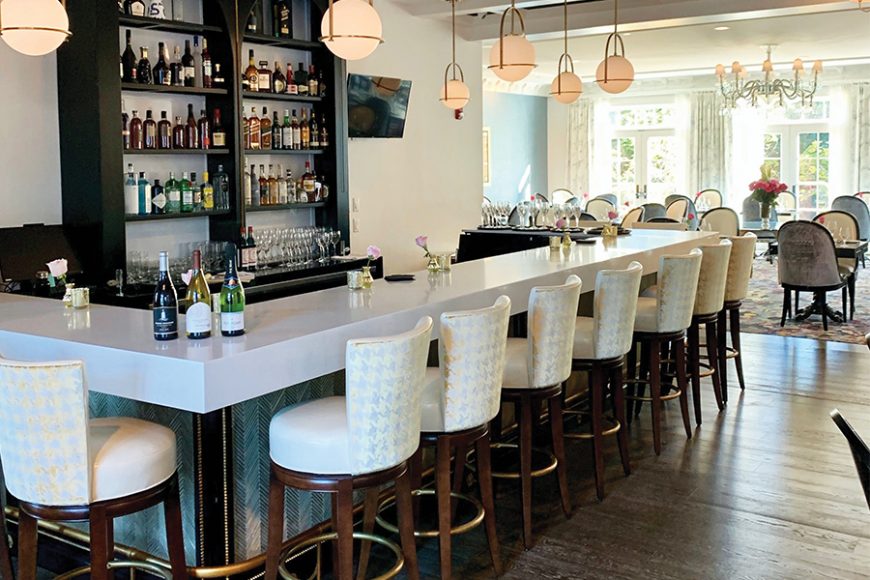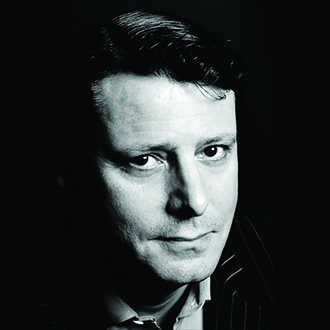Although it has already been open for a fortnight, an army of builders and masons are still laying the cobblestones in the circular drive when we pull up to Rhinebeck’s new Mirbeau Inn & Spa for lunch at the much-trumpeted Willow restaurant.
Make that Willow by Charlie Palmer. What singles out this new restaurant, in a sophisticated town not short on good, well-established restaurants, is that at its helm is the acclaimed chef and originator of “Progressive American” cooking, whose name is on the shingle of a dozen restaurants, two rooftop bars and one hotel across the nation.
Not that chef Palmer will be manning the stoves on a daily basis, you understand. That job falls to executive chef Thomas Burke, whom I caught up with on the phone as our dates to break bread together did not coincide. Unlike Palmer, a graduate of The Culinary Institute of America (CIA), Burke took a different path, he told me. Having started washing dishes at 14, he was flipping burgers at 16, but slowly worked his way up. Illustrious kitchens like the French Laundry, Per Se and Le Bernardin were to follow, before he arrived at Palmer’s New York flagship restaurant, Aureole, which in turn led to the top job at Willow.
Situated on the first floor of the Mirbeau complex, Willow is just past the front desk and concierge stand. With a completely open aspect, it feels like an extension of the main lobby, rather than a restaurant in its own right. The adjoining bar has the same sense of being part of the public space, which has the advantage of being on-trend, even if it does slightly lack a feeling of coziness.
The room itself is squeaky new. White is the color du jour, an anodyne canvas accented with curious whale-shaped, blue velour-backed chairs and a rather busy carpet with swirls of black, blue, burgundy and gold. Along the back of the room, quaint sheer curtains — from behind, which I would not have been remotely surprised to see a Miss Marple-type character peeping out, spying on what I was eating — obscure what to my mind is the room’s best feature, its view over the forest, including the willow trees, from which the restaurant takes its name.
With a propensity for luxury ingredients, foie gras and lobster among them, the menu will look familiar to habitués of Aureole, but a smattering of new dishes makes more than a nod to the Hudson Valley locale. Salmon rillettes — preserved salmon, which comes with red onion, dill and shaved radish — is appropriately rich, but it’s the bread the rillette is served on that’s the real star here. It’s not focaccia as told on the menu but a wonderful black bread, thick as a doorstep (or one of the cobblestones being laid in the driveway), with a heavenly chew of a crust. I could eat loaves of this stuff.
My companion’s cavatelli pasta — vaguely ear-shaped pasta, often likened to miniature hot-dog buns in appearance — was a perfect match with chunks of lobster, served in a light cream sauce with a pinch of chili for heat. There was garlic, too, and perhaps a touch too much for anybody with a postprandial appointment, although as my pal wisely noted, that’s why Listerine mouthwash was invented. It was a very fine dish overall, she thought.
With lots of local bounty, including natural produce, meat and poultry, and a clutch of great cheesemakers and brewers virtually on the doorstep, the menu delivers classic dishes reworked with local ingredients. A Hudson Valley chicken paillard with arugula, autumn pears and ricotta was a perfect expression of that classic dish, while the Mirbeau burger, with its soft brioche bun, portobello mushroom, and caramelized onions was the equal of its Aureole, Manhattan counterpart. It was also two-thirds the price, replacing Aureole’s aged cheddar with a lighter and more complementary gruyère.
“We’re not aiming to be a steakhouse,” chef Burke told me, “but we are aware there’s no steakhouse in the area and we are filling that niche.” Steak frites delivered a generous, dense New York strip, served rare, as requested, which we sliced with a steak knife so heavy and lethally sharp we felt we needed a license to use it. And the French fries were fabulous, so battered before frying they looked positively calcified. They also made a deafening crunch in the mouth. The only duff note was a small ramekin of truffled aioli, with no taste of truffle. A sauce Béarnaise or dollop of Dijon mustard might make the better accompaniment. When we spoke, chef Burke also mentioned that other great cuts of meat, including a côte de boeuf for two, have been recently added to the menu.
A shared dessert of Meyer lemon tart played second fiddle to a ripe blueberry compote and a decoration of crumbed Graham cracker, both of which slightly dominated, rather than supported it. We fared better with a silk-smooth crème brûlée and intense, housemade ice creams and sorbets.
With thoughtful and punctilious service, we paid a reasonable bill and left contented. Willow, I sense, is a work in progress. On my next visit — and yes, I will be back — along with some fine menu tuning and pace Jane Marple, I’m hoping the drapes will be open to reveal the forest and thus the full Willow experience.
For more, visit rhinebeck.mirbeau.com.


